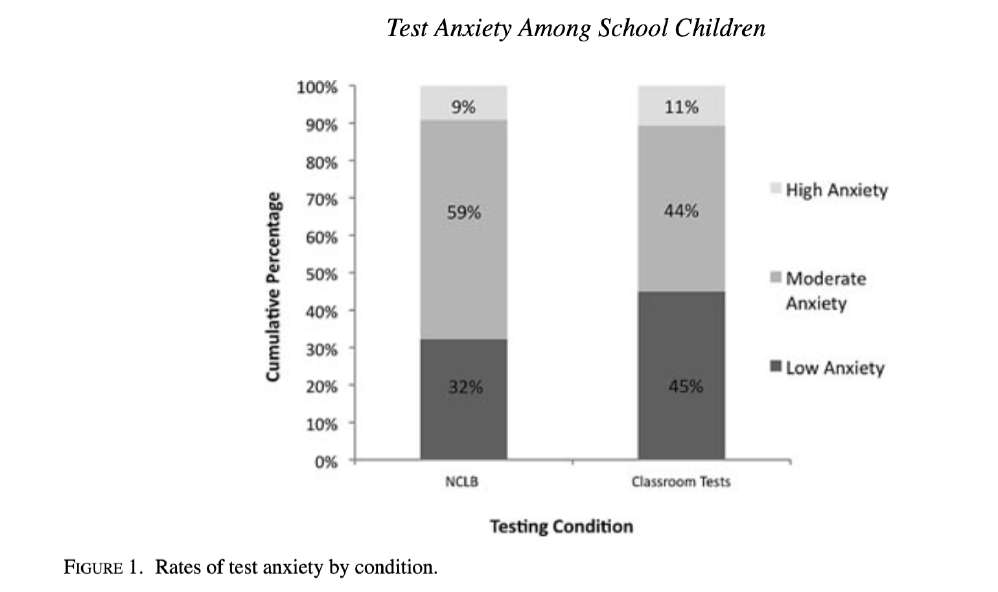 It’s that time of year again – either time for standardized tests or end of year exams.
It’s that time of year again – either time for standardized tests or end of year exams.
Test anxiety includes a variety of physical and emotional symptoms that include feelings of nervousness and hopelessness, fear, self-doubt, irritability, shortness of breath, rapid heartbeat, stomach pains, and headaches. Among elementary school children, standardized tests cause greater feelings of anxiety than routine classroom tests, and students with dyslexia may experience the stress and anxiety more acutely.

THE DOUBLE-EDGED SWORD OF TESTING FOR DYSLEXIC STUDENTS
Testing can be a double-edge sword for dyslexic students – because a test result may determine whether a student needs additional support, tutoring, accommodations, or even access to assistive technology. But testing may also inform decisions about holding back students, depriving them of electives, sports, etc.
Standardized tests also may have unintended negatives when they force students to sit through what may be hours of inappropriate material. For instance, elementary school students who are not yet decoding, may have to sit through hours of tests that they can’t possibly complete, all the time magnifying their embarrassment and shame as other classmates don’t seem to have the same struggles.
Researchers have found that young dyslexic students are more emotionally sensitive than their peers – and yet few considerations are given to the emotional well-being of students; they are often under greater academic, social, and emotional pressures – but for the most part, they are on their own.
WHAT CAN BE DONE?
If you’re currently in the throes of testing season, eat well, get plenty of sleep, and don’t emphasize outcome. If accommodations are permitted, then make sure they will be provided.
Practice relaxation techniques like deep breathing and talk through what to expect and strategies that a student can take (like answering the easy questions first) to reduce feelings of panic.
The We Are Teachers blog has a nice collections of suggestions to reduce anxiety when it comes to test time. Teachers should add in more recess if possible during the testing season and back-up plans should be discussed if an anxiety attack occurs during the test. Some students have a plan to take a brief break, get a drink of water or go out in the hallway for a moment.
Students can pick up on the anxiety of parents – and parents may be reliving some of their own anxieties with school and test-taking. Take stock of yourself, model self-compassion, and do your best to support your student through what may be a stressful time.
If a student comes home upset with what they are certain was a “bad test”, let then know that who they are as a person is much more important than any test.
For many reasons, test-taking is especially difficult for dyslexic students; talk with them about how things will get better – and think about whether adding some low-stakes test-taking practice or learning more about metacognition will help them feel better-prepared for exams in the future.
Stanford Teaching Commons has a simple lesson to introduce the idea of metacognition. A lesson is provided (the example given is the carbon cycle), then afterwards, without looking at notes, a student tries to recall what was taught by drawing it. The differences with this sort of test is that the student analyzes what the gap was between being presented with something and recalling it – and then time is spent figuring out how the student may learn better.
Academically successful dyslexic students tend to be highly metacognitive; going over practice test questions with answers and explanations can identify issues (does the student need accommodations to read questions, for instance?) as well as help students recognize patterns of study and learning that they can optimize for all of their subsequent work. If you’re a parent who may have trouble helping your student, see if your students’ teacher or a tutor may help. If a student is behind, they may be eligible for tutoring paid by the school.
YOU’RE NOT ALONE
Often when students are struggling, they compare themselves to peers, and magnify negative feelings about themselves. Challenges with test-taking are universal. Share some of the stories in our newsletters or YouTube channel. If you haven’t watched our videos before, check out the one below:
Here’s a reasonable general overview about metacognition (from a testing service).
Recognize that standardized tests may be a very poor indicator of a student’s knowledge and thinking abilities. Still, some test results may have benefits – for example, accessing additional supports that may help.
For more tips, check out Psych Central’s 10 Strategies for Before and During the Test














